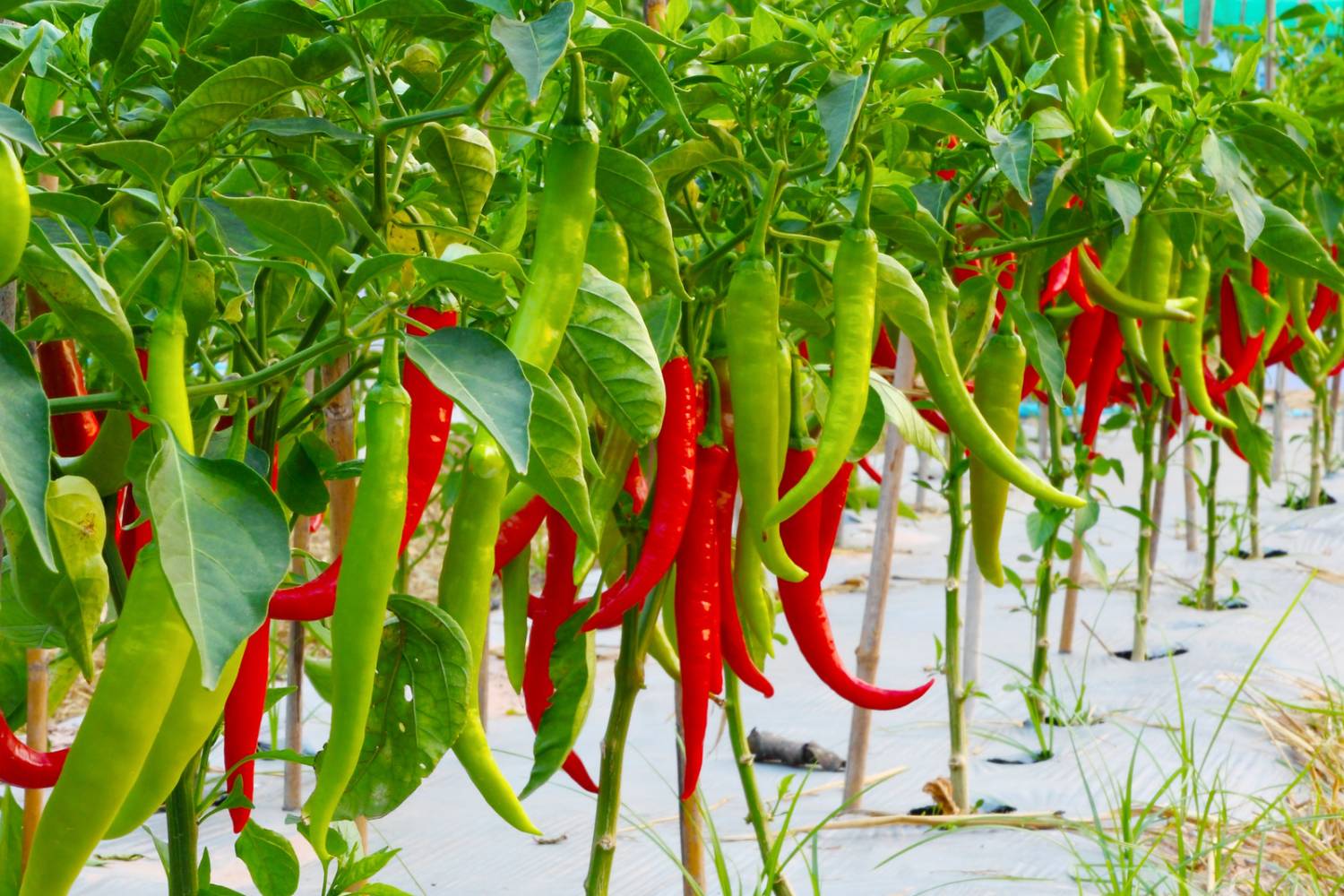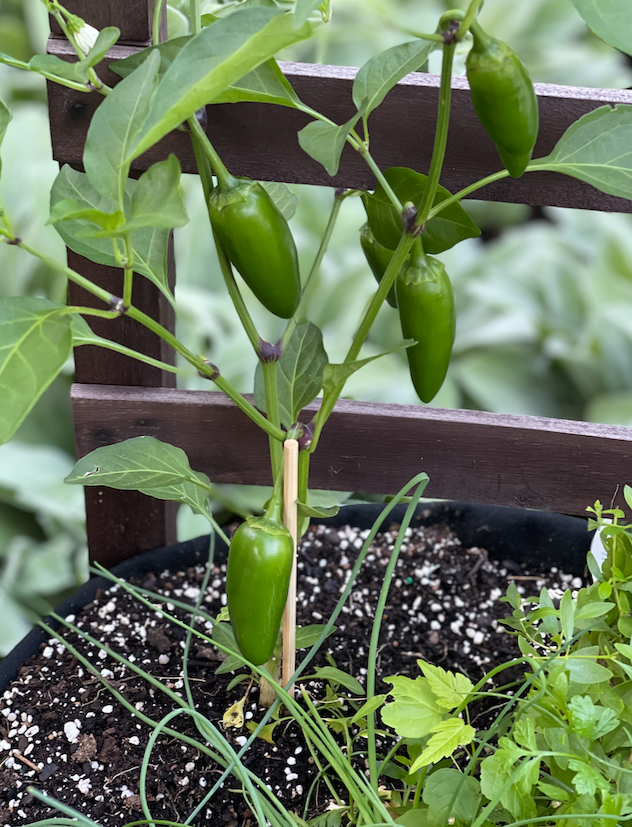Discover the Best Fertilizers for Peppers: Necessary Nutrients for Growing Plants
Discover the Best Fertilizers for Peppers: Necessary Nutrients for Growing Plants
Blog Article
How Plant Foods Play an Essential Role in Growing Healthy and Abundant Pepper Crops
Plant foods serve as the backbone of successful pepper farming, using a strategic strategy to nurturing the soil and cultivating ideal plant growth. The intricate dancing between crucial nutrients and the pepper plants' physical procedures emphasizes the crucial duty that plant foods play in making sure an abundant harvest. From fueling robust root growth to boosting disease resistance, the influence of fertilizers is significant in the cultivation of healthy and worthwhile pepper crops. Stay tuned to discover the nuanced methods which fertilizers add to the flourishing of pepper plants and the lasting practices that underpin their efficiency.
Importance of Nutrient-Rich Fertilizers
The application of nutrient-rich fertilizers plays a crucial role in boosting the performance and quality of pepper crops in modern-day farming practices. Pepper plants need a well balanced combination of crucial nutrients to grow and produce high returns of quality fruits. Phosphorus, potassium, and nitrogen are key nutrients that are essential for the development and growth of pepper plants. Nitrogen aids in leafed environment-friendly growth and overall plant vigor, phosphorus supports origin growth and blossom manufacturing, while potassium adds to illness resistance and fruit top quality.
Insufficient levels of these nutrients can cause stunted growth, reduced yields, and susceptibility to diseases (best fertilizers for peppers). Nutrient-rich fertilizers give a targeted remedy to make sure that pepper plants get the necessary elements for optimal development and performance. In addition, these plant foods assist enhance soil fertility over time, creating a lasting atmosphere for lasting pepper growing
Enhancing Plant Growth and Growth
To enhance plant growth and growth in pepper crops, tactical application of nutrient-rich plant foods is necessary. Fertilizers play an essential duty in improving the overall health and performance of pepper plants by giving them with crucial nutrients that may be doing not have in the soil. Phosphorus, potassium, and nitrogen are primary macronutrients required in huge quantities by peppers for durable growth. Nitrogen help in leafed green development and overall plant vitality, phosphorus supports root growth and flower development, while potassium adds to disease resistance and fruit top quality.
Along with these macronutrients, trace elements such as iron, magnesium, and zinc are likewise essential for the proper functioning of different plant procedures. Iron, for circumstances, is necessary for chlorophyll production, which is crucial for photosynthesis and overall plant development. Zinc plays a critical role in enzyme activity and hormonal agent synthesis, influencing plant growth and advancement at a mobile level. Magnesium is necessary for the development of chlorophyll and overall energy transfer within the plant.

Boosting Condition Resistance With Plant Foods
By strategically incorporating targeted plant foods, farmers can strengthen the illness resistance of pepper crops, guaranteeing optimal plant health and performance. Plant foods having necessary nutrients like nitrogen, phosphorus, and potassium play a crucial duty in enhancing pepper plants' immune systems, making them more resistant look at this site to different diseases.

Maximizing Pepper Return With Fertilizing
Making use of a balanced fertilizing method is key to attaining maximum pepper return and guaranteeing optimum crop performance. By supplying peppers with the right nutrients at the correct time, farmers can substantially enhance their return capacity. Nitrogen, potassium, and phosphorus are essential aspects for pepper growth, with nitrogen helping in fallen leave and stem development, phosphorus supporting origin growth and flower development, and potassium promoting general plant health.
To optimize pepper yield, it is important to perform soil tests to establish existing nutrient levels and recognize any deficiencies that require to be resolved. Based on these results, farmers can create a customized fertilization strategy that meets anchor the particular requirements of their pepper plants. Furthermore, correct fertilizing strategies such as split applications throughout the expanding season can guarantee continuous nutrition schedule for the plants.

Sustainable Plant Food Practices for Peppers
In taking into consideration sustainable fertilizer practices for peppers, it is necessary to focus on long-term soil health and wellness and ecological stewardship in conjunction with optimizing plant performance. Lasting plant food techniques intend to keep or boost soil fertility while reducing negative environmental effects. One essential method is using natural plant foods such as garden compost, manure, or cover plants, which not just give crucial nutrients to the peppers yet additionally add to dirt framework and microbial task. These natural choices assist develop raw material in the soil, enhancing its capacity to retain water and nutrients, thereby supporting lasting plant wellness and strength.
Additionally, accuracy farming techniques, such as dirt testing and targeted nutrient applications, can aid enhance fertilizer usage, guaranteeing that peppers obtain the nutrients they require without excess runoff right into waterways. This not just benefits the setting by decreasing pollution however also conserves costs for farmers by decreasing waste. By embracing lasting plant food practices, pepper farmers can protect the wellness of their plants, dirt, and surrounding ecosystems for future generations.
Verdict
To conclude, plant foods are necessary for cultivating bountiful and healthy pepper crops. best fertilizers for peppers. They give needed nutrients for plant growth and advancement, increase disease resistance, and make best use of return. By implementing lasting plant food techniques, farmers can make certain the long-term wellness of their pepper plants and add Discover More Here to a much more environmentally-friendly and efficient farming system
The detailed dance between necessary nutrients and the pepper plants' physical procedures underscores the critical function that plant foods play in making certain a bountiful harvest.To optimize plant growth and advancement in pepper crops, strategic application of nutrient-rich plant foods is essential. Plant foods play an important function in boosting the total wellness and performance of pepper plants by providing them with important nutrients that may be lacking in the soil.By strategically incorporating targeted fertilizers, farmers can bolster the disease resistance of pepper crops, ensuring optimal plant health and productivity. Fertilizers containing essential nutrients like nitrogen, potassium, and phosphorus play an essential role in enhancing pepper plants' immune systems, making them much more durable to different illness.
Report this page